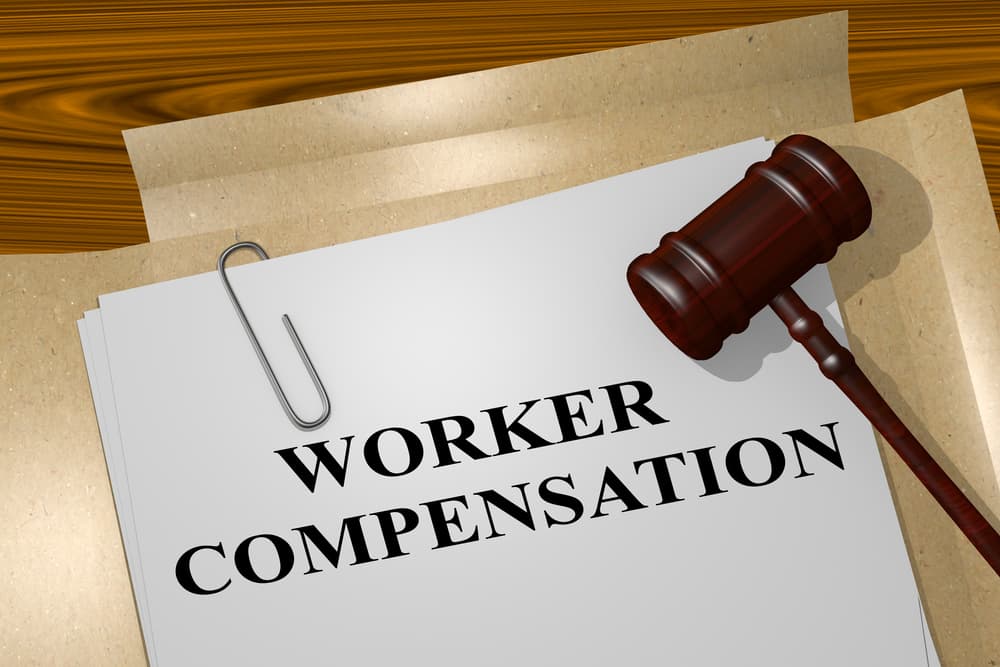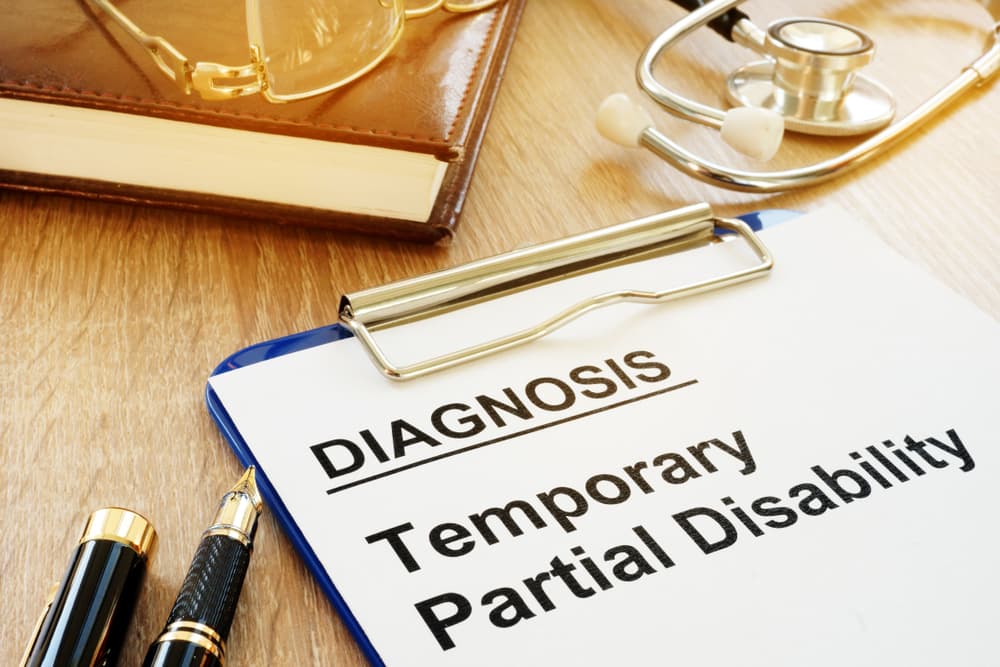Workers’ compensation claims can be a lifeline for employees who suffer job-related injuries or illnesses. However, navigating the workers’ compensation system can be complex and time-consuming. One of the most common questions employees ask when they file a claim is, “How long will it take?”
The timeline for a workers’ compensation claim can vary widely based on numerous factors, including the nature of the injury, the efficiency of the claim process, and legal complexities.
While every claim is different, it is always best to have a skilled workers’ compensation attorney assisting you with your claim. A lawyer can help expedite the process and tackle any potential obstacles to get you the benefits you need as quickly as possible.
Understanding Workers’ Compensation Claims

First and foremost, it’s essential to understand what workers’ compensation is and how it can benefit employees after a work-related injury or illness.
Workers’ compensation, or “workers’ comp,” is a government-mandated insurance program designed to provide benefits to employees who suffer an injury or become ill due to their jobs. While not all employers must offer this type of insurance to their employees, a large majority must provide protection in the event of work-related harm. Each state runs its workers’ comp program; therefore, all states have different requirements.
Employers who offer workers’ comp protection to their employees receive protection from liability. So, should an employee get hurt while on the job or suffer from an illness, they cannot take legal action against their employer. Instead, as a hurt employee, workers’ compensation provides a more streamlined approach to receiving the compensation you need.
Benefits and Compensation Offered Under Workers’ Comp
Workers’ compensation can provide hurt employees with benefits and assistance to help with financial burdens resulting from workplace injuries and illnesses. The benefits available are based on the specific circumstances and state laws.
Some of the notable benefits injured workers can receive through workers’ comp include:
- Medical benefits: Coverage for the cost of medical treatment related to the work injury or condition. It includes doctor’s visits, hospital stays, surgeries, medications, and other necessary treatments.
- Rehabilitation benefits: Coverage for vocational rehabilitation services to help injured workers return to work. It may include job training, resume assistance, and other support services.
- Death benefits: Compensation to the dependents or family members of a worker who dies as a result of a work-related injury or illness. It includes funeral and burial expenses and financial support for dependents.
Additionally, workers’ compensation provides disability benefits. It involves compensation for lost wages if the injury or illness prevents the worker from performing their job. These benefits can be temporary (while recovering) or permanent (if the worker cannot return to their previous role). These benefits include:

- Temporary partial disability (TPD): For workers who can still work but are earning less due to their injury.
- Temporary total disability (TTD): For workers who are temporarily unable to work at all due to their injury or illness.
- Permanent partial disability (PPD): For workers who have a permanent impairment but can still work in some capacity.
- Permanent total disability (PTD): For workers who are permanently unable to work.
Workers’ compensation benefits can significantly help injured and ill workers, especially when they have dependents. If you’re unsure what type of benefits you’d be entitled to receive, discuss your situation with a local workers’ compensation attorney for clarity on your case.
Injuries and Illnesses Covered by Workers’ Compensation
Workers’ compensation covers a wide variety of injuries and medical conditions. The specifics can vary by jurisdiction but generally include:
Work-related Injuries
Work-related injuries are those that happen at work while performing job duties. It commonly includes injuries resulting from accidents, like falls, trips, and slips. Strains and sprains are common depending on the work type, including lifting, carrying, or repetitive motions.
Occupational Illnesses
Occupational illnesses are diseases or conditions that arise from exposure to harmful substances or environments at work. These include respiratory conditions like asthma, skin conditions like dermatitis, and hearing loss due to prolonged exposure to high noise levels.
Repetitive Stress Injuries
Repetitive stress injuries result from repeated motions or prolonged use of certain body parts. These injuries include carpal tunnel syndrome and tendonitis.
Chronic Conditions
Workers’ compensation may also cover an employee’s pre-existing condition aggravated by work activities.
How Long Does a Workers’ Compensation Claim Take?
If you’ve suffered harm due to your occupation and need to file a workers’ compensation claim, you’re likely wondering how long the process takes. Generally, there is no average length of time you can expect your claim to take. Instead, the time your claim takes depends on several factors, including how quickly you report your injury, how long it takes for the insurance company to investigate, and state requirements.
The Timeline of Filing a Workers’ Compensation Claim
Filing a workers’ comp claim can seem daunting and overwhelming. However, by taking it one step at a time, you can ensure every critical step is handled timely and properly, giving you a better chance of receiving approval.
When you suffer an injury or become ill due to your occupation, it’s best to seek help from a workers’ compensation attorney. Every state’s workers’ comp process varies, so having a lawyer supporting you is especially helpful. A lawyer can skillfully guide you through the process and aid in obtaining a speedy decision.
Initial Reporting and Filing
The clock on a workers’ compensation claim often starts ticking when an injury occurs or you receive a diagnosis. Most states require employees to report their injury to their employer within a specific timeframe. For example, in California, you only have 30 days to notify your employer, while in South Carolina, you have 90. Delaying can jeopardize your claim, so it’s crucial to notify your employer as soon as possible, regardless of how long you have.
Once you report your injury, the employer may provide you with the necessary forms to file your claim. The time it takes to complete and submit these forms can affect the overall timeline of your claim. In many states, the employer must report the injury to their insurance carrier and state workers’ compensation board within certain days.
The initial reporting and filing process can take a few days to a couple of weeks, depending on how quickly you and/or your employer complete and submit the necessary paperwork.
Medical Evaluation and Treatment
After filing your claim, you may need to undergo a medical evaluation to determine the extent of your injuries, even if you previously sought medical attention. When requested, this examination is crucial for substantiating your claim and determining the appropriate benefits.
The time it takes to gather and review medical records can vary. Your healthcare provider must document your injury, treatment plan, and prognosis. This documentation is essential for the insurance company to assess the validity of your claim and the extent of your disability.
The medical evaluation and documentation phase can take several weeks, depending on the complexity of your injury and how quickly your medical provider submits the necessary information.
Claim Investigation and Review
Once the claim is filed and the insurance company has proper medical documentation, they can begin their investigation. This process involves reviewing all relevant documents, including accident reports and medical records.
A claims adjuster will be assigned to your case to determine the claim’s validity and the benefits you’re entitled to. The adjuster may also request additional information or clarification from you or your healthcare provider. If so, your lawyer can assist with this.
The investigation and review process can take anywhere from a few weeks to several months, depending on the case and the claims adjusters’ speed.
Acceptance or Denial of Claim

If your claim is accepted, the insurance company will issue benefits. You will typically begin receiving your compensation for medical expenses and lost wages shortly after acceptance of your claim.
Should the insurance company deny your claim, you will receive a written explanation of the reasons for the denial. Common reasons for denial include lack of medical evidence, failure to meet reporting deadlines, or disputes over whether the injury was work-related.
The decision to accept or deny a claim generally occurs within 30 to 90 days after the insurance company has received all necessary information. However, this can vary based on your case’s specifics, the insurance company’s efficiency, and state legal requirements.
What Happens When a Workers’ Comp Claim is Denied?
Receiving a claim denial can be devastating, especially when you’re in financial need. If your claim is denied, you may have the opportunity to file an appeal with your state’s workers’ compensation agency. Each state has different appeals procedures and deadlines to file your appeal, so becoming familiar with these details is vital.
Working with a knowledgeable lawyer is in your best interest if your workers’ comp claim is denied. Appeals can be tricky, but your attorney can efficiently navigate the process and do whatever is necessary to get you a more beneficial result.
Receiving Workers’ Compensation Benefits
Once your claim is approved, you should begin to receive benefits quickly.
Medical benefits can be approved, and you can start covering your expenses relatively fast once the claim is accepted. It can sometimes be within a few weeks if there are no delays. Medical benefits are paid directly to medical providers; you may receive reimbursement if you have already paid out of pocket.
For wage replacement benefits, you should begin to receive payments within about two weeks. However, the exact timing can depend on your case and state laws. Wage replacement benefits are usually paid periodically (like every two weeks or monthly), and you may receive either a direct deposit or a physical check.
Should you have issues with receiving benefits or are delayed, speak with your lawyer. Your attorney can determine why there’s a holdup and work to fix any potential issues.
Factors Affecting the Timeline of a Workers’ Comp Claim
Several factors can impact how long it takes to resolve a workers’ compensation claim. Understanding these factors helps manage expectations and expedite the process.
The Complexity of Your Injury or Condition
Simple, straightforward injuries tend to be resolved more quickly than complex, severe injuries or illnesses. Claims involving multiple medical issues, long-term disability, or significant medical treatments may take longer.
State Regulations
Workers’ compensation laws and procedures vary by state. Some states have streamlined processes and faster timelines, while others may have more requirements that can lengthen the process.
Insurance Company Efficiency
Insurance companies and adjusters can be slow to process claims, especially when they’re overwhelmed with claims or understaffed. The longer the insurance company takes to investigate and decide, the longer you wait.
Denied Claims
Receiving a claim denial can seriously affect your timeline. When your claim is denied, you’ll need further action to appeal the decision and get the benefits you deserve, which takes time.
Legal Representation
Generally, when a workers’ compensation attorney handles your claim, the process goes smoother and faster. The workers’ comp claims process can be challenging but experienced lawyers know how to handle a claim from beginning to end and promptly take care of any hindrances to get your benefits as quickly as possible.
Following a Workplace Injury, Do Not Wait to Seek Legal Assistance for Your Claim

The timeline for resolving a workers’ compensation claim can vary widely based on numerous factors. While some claims may be resolved relatively quickly, others may take several months and plenty of effort to fully settle.
Do not hesitate to consult a legal professional when you suffer a work-related injury or illness. By seeking legal assistance early on, you can ensure that your rights are protected from the outset. A workers’ compensation attorney can positively impact your claim’s timeline and allow you the needed time to recover.
Following a workplace injury, it is crucial to seek legal assistance for your workers’ compensation claim. By involving an attorney early on, you can maximize your chances of receiving the benefits you deserve. Don’t delay, reach out to a reputable workers’ compensation attorney today to get the help you need.

